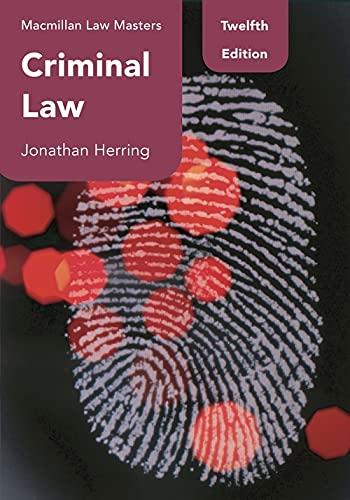Question
United States v. Durham 766 F.3d 672, 2014 U.S. App. Lexis 17267 (United States Court of Appeals for the Seventh Circuit, 2014) Criminal Law and
United States v. Durham 766 F.3d 672, 2014 U.S. App. Lexis 17267 (United States Court of Appeals for the Seventh Circuit, 2014) Criminal Law and Cybercrime Copyright 2020 Pearson Education, Inc. 109
Case: Timothy Durham and James Cochran owned and operated Fair Finance Company (Fair). Fair was an investment company that sold interest-bearing certificates to investors with the promise of extraordinarily high interest payments and the repayment of the investor's principal in five years. Rather than investing the clients' funds, however, Durham and Cochran used the money to support their lavish lifestyles. Following an extensive investigation, the Federal Bureau of Investigation (FBI) seized Fair's computer and other records and arrested Durham and Cochran. Over a period of eight years they had enticed more than 5,000 investors, many of them elderly or living on modest incomes, who lost $215 million. Only $6 million of assets was recovered.
Issue: The federal government sued Durham and Cochran for securities and wire fraud.
Critical Thinking Question: Are Durham and Cochran guilty of fraud? Did Durham and Cochran act ethically in this case?
Step by Step Solution
There are 3 Steps involved in it
Step: 1

Get Instant Access to Expert-Tailored Solutions
See step-by-step solutions with expert insights and AI powered tools for academic success
Step: 2

Step: 3

Ace Your Homework with AI
Get the answers you need in no time with our AI-driven, step-by-step assistance
Get Started


